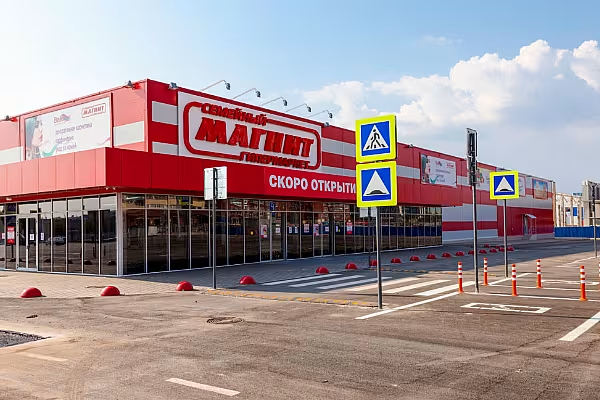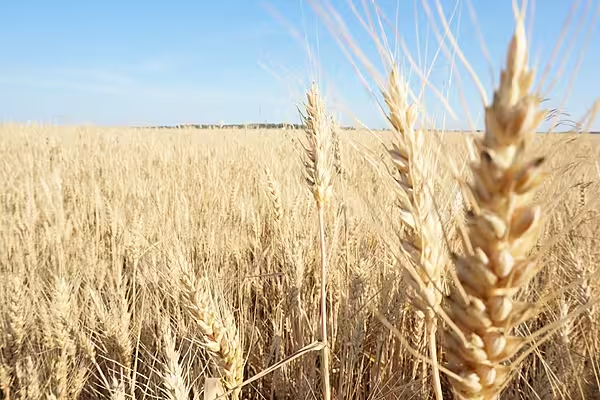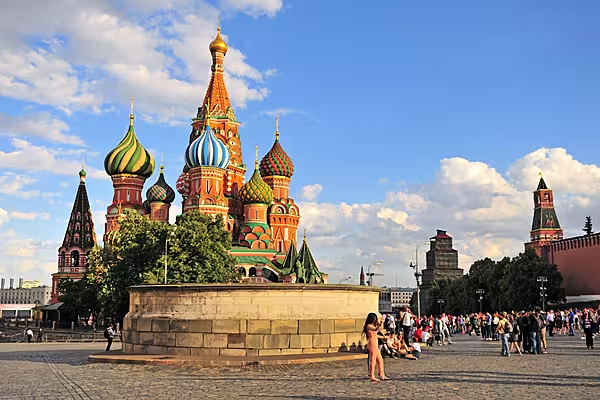Russia has done so well in vanquishing inflation that even the Bank of England might take notice.
While policy makers in London are under pressure to act after core inflation accelerated to the fastest since 2011, the same gauge probably reached a new historical low in Russia, falling below its level in the U.K.
Inflation Slowdown
Data due this week will show Russia’s index of consumer prices that strips out volatile components such as food and energy slowed to an annual 2.6 percent in September from 3 percent a month earlier, according to the median of seven estimates in a Bloomberg survey. In the U.K., it jumped to 2.7 percent in August.
The bad news for Russia is that the outsized role of fruit and vegetable prices in shaping inflation expectations means the core index is of less value for the central bank. While food accounts for almost 40 percent of Russia’s consumer-price basket, it’s closer to 10 percent in developed economies such as the U.K.
“ Food prices play a key role in setting inflation expectations, and there isn’t much use from core inflation,” said Vladimir Miklashevsky, senior economist at Danske Bank A/S in Helsinki. “It won’t have a big impact on the consumer and monetary policy, as the key indicators for the Bank of Russia are the consumer-price index and inflation expectations.”
Still, the historic deceleration in Russian inflation to less than a fifth its level two years ago -- and the even faster decline in the core index -- shows how much headway policy makers made in keeping price pressures in check as they maintain a “moderately tight” stance. On an annual basis, core inflation peaked at 17.5 percent in March 2015.
‘Without the Noise’
The core measure is among the indexes the Bank of Russia uses to analyze trends in prices, allowing it to assess inflation “without the noise,” according to its draft policy guidelines for the next three years. Its other tools include inflation gauges that strip out the cost of housing utilities, fruit and vegetables, as well as state-administered tariffs and other regulated prices.
Russia’s headline index of consumer prices reached 3.1 percent in September from a year earlier after already slowing to a record of 3.3 percent in August, another Bloomberg poll showed. It remains within the central bank’s target of “near or around” 4 percent.
Inflation may be close to reaching a “floor,” according to Nataliya Shilova, chief analyst at B&N Bank PJSC in Moscow, who predicts the ruble will weaken in the fourth quarter.
“Of course, a downward deviation of more than one percentage point is significant, but according to our estimates, inflation will return to 4 percent in 2018,” she said.
News by Bloomberg, additional reporting by ESM. Click subscribe to sign up to ESM: The European Supermarket Magazine.














